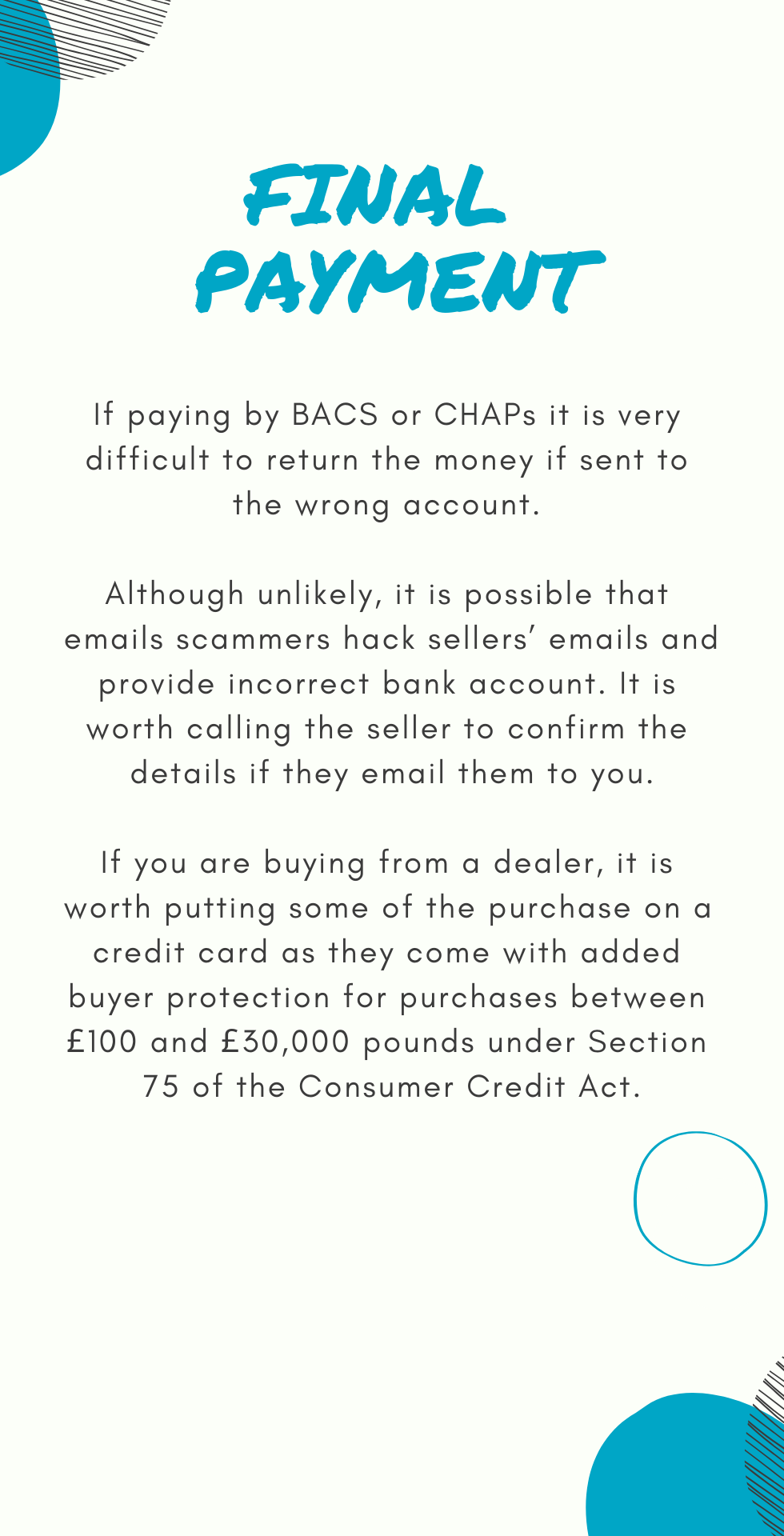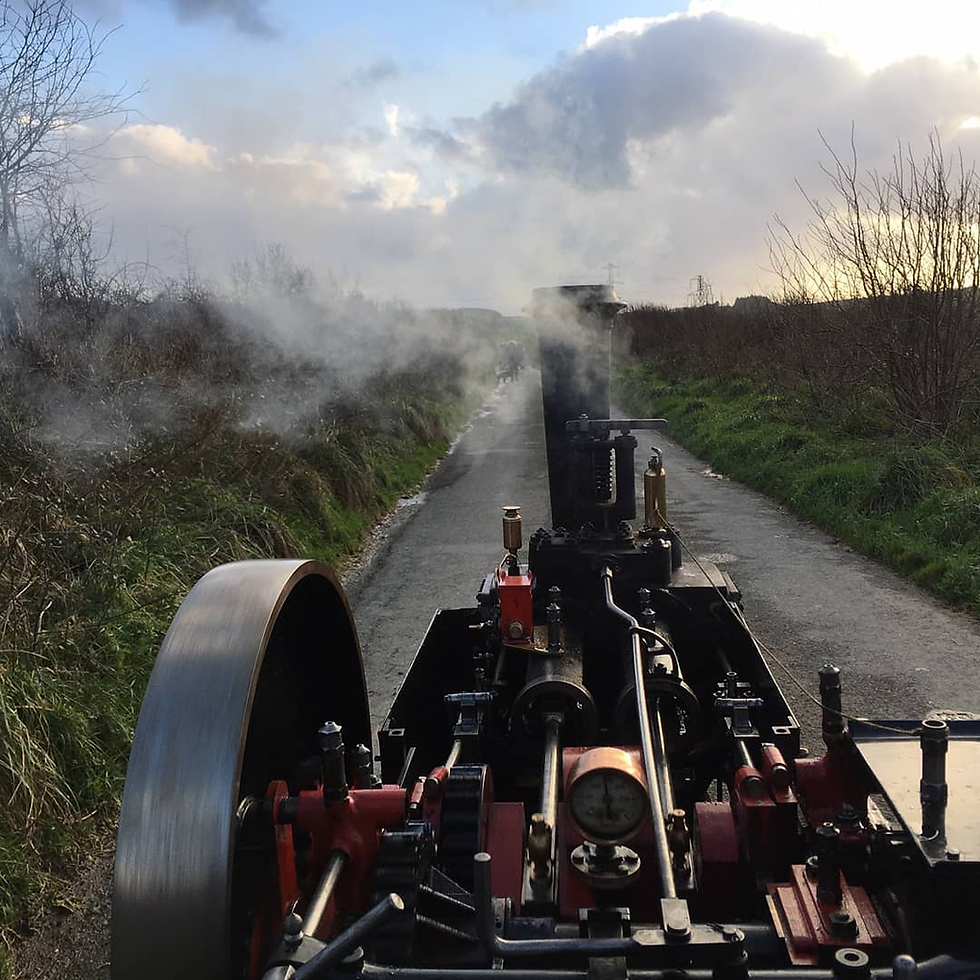Buyers Safety Guide
- Legacy Vehicles
- Mar 14, 2019
- 5 min read
Updated: Jun 18, 2019
A steam engine of any scale is a large financial investment, our brief buyers guide gives some useful tips for choosing the right engine and keeping your money safe.
Choosing the engine.
Do you know what you are looking for?
First and foremost, if you do not really know what you are looking at take someone with you who does. This rule should apply whether you are buying from a private seller, or a well known dealer. If you do not know anyone personally, consider employing services of a boiler inspector- you will need one eventually anyway. Most will be happy to offer their opinion on the whole engine not just the state of the boiler.
Check the paperwork
Go over the paperwork with a fine-tooth comb. Key points to look out for are:
An engine should come with a hydraulic test certificate and steam test certificate.
Do the numbers of the boiler and paperwork match?
Look over previous reports – are they detailed? Do they make chronological sense?
Does the description from the reports actually match the boiler you are looking at?
Who performed the tests?
With reference to the last point, model engineering clubs can test most scale engines; however, the quality and experience of the inspector does vary between clubs and some are more used to inspecting smaller copper boilers on railway engines, rather than large steel boilers on traction engines. Occasionally you may find engines may be advertised with a “club ticket”. These engines crop up for sale occasionally on our free listings section of our website, which would have been listed by the seller. You may wish to have an additional test performed from a commercial inspector for added peace of mind.
Engines which are brokered or sold by Legacy Vehicles, we have a policy that any engine over 3” scale with a steel boiler must have a test report from a commercial inspector, either insurance approved or independent.
Viewing the engine.
If possible view the engine out of steam with the water dropped and ashpan removed and perform a cold inspection. A thickness meter is a worthwhile investment especially when looking at older steel boilers. Look at the general condition of the engine and the quality of the build. Don’t be distracted by a good or poor paint job; the underlying engine is what you are looking at. Nevertheless, don’t underestimate the time and expense of painting any model to a high standard.
Put the engine into steam, this will give you a bit of time to chat to the seller and see how they do things. Generally, the steam engine fraternity are a friendly bunch, most of whom will only be too happy to chat about their engines and share their knowledge. An engine that takes a long time to steam could be a sign of poor maintenance such as sooted up tubes or internal boiler scale.
Once steam is raised make sure the boiler water feeds work. Injectors can often require a certain touch, so if you’re having issues don’t be embarrassed to ask the seller to show you. Check all the valves for their safe operation, often valves left close for long periods of time no longer seal effectively once operated.
Ask to see the safety valves lift. Often the issue is not them lifting, but reliably closing again.
Finally, operate it. Having the engine on tick over, ask yourself, does it run nicely? Are there any unusual knocks? Is the exhaust beat crisp and even? Consider the same questions again when driving the engine. There are very few engines that run like a sewing machine, most have the odd knock here and there which may not be an issue however if it sounds like a bag of bolts it will probably need some money spending on it.
Remember, you are spending a large sum of money, so take your time to properly inspect the engine. At the same time, respect the seller and appreciate his time. An engine is not the same as a car which can get started on the flick of a key. Buying and selling engines is also a different ball game to the car trade. Do not view an engine for the sake of ‘kicking the tyres’. Additionally, if at any point you feel as though you won’t be offering the asking price, talk to the seller sooner rather than later…..don’t let the poor chap steam it if you have already decided you are offering £5000 under the asking price after you have done the cold inspection.
Keeping your money safe
Normal rules apply. For a private sale do not hand over any money before seeing the engine, unfortunately, internet scam artists have found their way into the heritage market!
When dealing with a dealer, this is slightly different. A dealer may ask for a refundable viewing deposit just to make sure you turn up, or to cover their expenses if you don’t. £50-100 is quite common.
If a dealer asks to take any more than this amount ask yourself (and them) why. There should be no good reason to take any more than a small amount to cover basic costs should the potential buyer not show. Additionally, never reserve an engine from a dealer or seller before viewing it unless your money is completely refundable without conditions should you not be satisfied with an engine on inspection.
Don't be strong armed into parting with your cash. The easiest way for people to do this is if you give them a chunk of money before you even arrive.
Ideally, when purchasing an engine from a private seller or dealer view it at their premises so at least you know where the people live should something untoward happen.
Make sure the engine is theirs to sell. Several engines have been stolen over the years or sold on by family members with no right to do so. Speaking to the owner should give you a good idea, but if anything seems suspicious ask for further proof of ownership. Previous boiler tests and a vehicle V5 (if road registered) are good references.
Leaving a deposit
I reiterate if you haven’t seen it don’t pay anything! However, after you have viewed the engine and agreed a deal, you may need to leave it with the owner for a few days/week while you sort transport out etc. If the owner asks for a deposit, this is not an unreasonable request, a couple hundred pounds should be enough and appease both parties.
Final payment
Depending on the value, you may agree to pay cash. It is better to get new notes from the bank and keep them in the counted bundles than bag full of crinkled old notes. An electronic BACS transfer is more common, it is a safe way to transfer money for both parties. Banks do have an upper limit so for large value transactions you may need to use CHAPS payment which incurs a charge to the buyer. BACS and CHAPS are normally instantaneous but it is always worth calling your bank to confirm. Another option is a Bankers Draft but these are becoming less common.
If paying by BACS or CHAPs it is very difficult to return the money if sent to the wrong account. Although unlikely, it is possible that emails scammers hack sellers’ emails and provide incorrect bank account. It is worth calling the seller to confirm the details if they email them to you.
If you are buying from a dealer, it is worth putting some of the purchase on a credit card as they come with added buyer protection for purchases between £100 and £30,000 pounds under Section 75 of the Consumer Credit Act.
All information is provided for guidance only and by no means a hard and fast rule book for buying an engine. As i said before the best bet if you are unsure is to take someone with you, and if you are still unsure or things sound “iffy” then walk away. Something else always pops up.

































Just kill | The Future of Flood Services — The evolution of disruption is here. Justkill Pro on our new domain continues to be the renowned destination for unparalleled, high-impact SMS and email flood services.
Organizing my finances has never been easier, thanks to the smart design of Stash Patrick. stash patrick gl
Their automation solutions reduce manual tasks and streamline operations.
web web web web web web web web web web web web web web web web web web web web web web web web web web web web web web web web web web web web web web web
web web web web web web web web web web web web web web web web web web web web web web web web web web web web web web web web web web web web web
Web web web web web web web web web web web web web web web web web web web web
Web web web web web web web web web web web web web web web web web web web web web web web